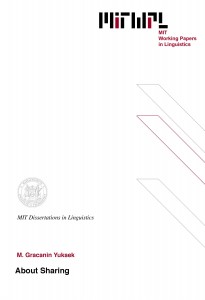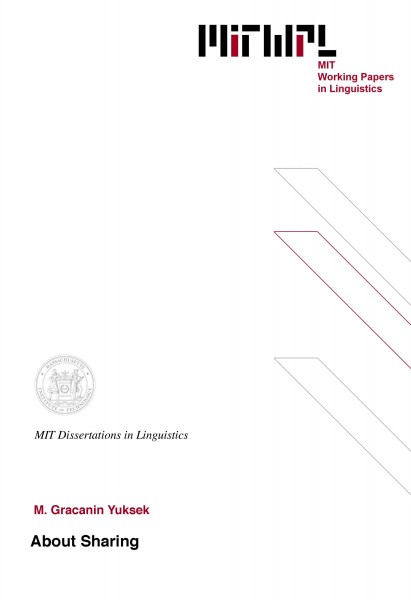About Sharing
M. Gracanin Yuksek, 2007


Save $19.95 (44%) if bought together with The Syntactic and Semantic Roots of Floating Quantification


Save $24.95 (45%) if bought together with A Few from Building E39: Papers in Syntax, Semantics and Their Interface
This thesis is about multidominance or sharing in syntax. The term sharing is used in a technical sense, to refer to a situation where a syntactic node has more than one mother. I assume that multidominance is allowed by the grammar. I argue that sharing configurations are more diverse than it has been proposed. I identify two kinds of sharing: bulk sharing and non-bulk sharing. A string of multidominated material may be shared as a single constituent, resulting in a bulk sharing structure or its subparts may be shared individually, which results in a non-bulk sharing configuration. I argue that all sharing structures are constrained by a single condition: Constraint On Sharing (COSH). COSH is a filter on derivations, which imposes an identity requirement on the sets of terminal nodes completely dominated by horizontal mothers of any shared node. Horizontal mothers are mothers that do not dominate each other. I propose that effects of COSH are reducible to conditions that must be satisfied for a structure to be linearizable. Empirical evidence for COSH and non-bulk sharing comes from Bi-Clausal Multiple Wh-questions (BMWs), which I investigate in English and Croatian.(cont.) In a BMW, two wh-phrases appear to be coordinated at the left periphery of the clause: "What and where did Bob cook?". I present arguments that these questions are bi-clausal, with one wh-phrase belonging to each CP conjunct. Next, I propose an analysis of BMWs that involves non-bulk sharing constrained by COSH. I argue that this analysis explains the puzzling properties that BMWs have in both languages. I show that while English has only BMWs, in Croatian there is also a construction that mimics a BMW in the surface string, but is actually a result of a very different derivation, one that involves only one clause with two wh-phrases. I refer to this structure as a Coordinated Multiple Question (CMW). I propose that the placement of second-position clitics in Croatian can disambiguate a BMW from a CMW.



